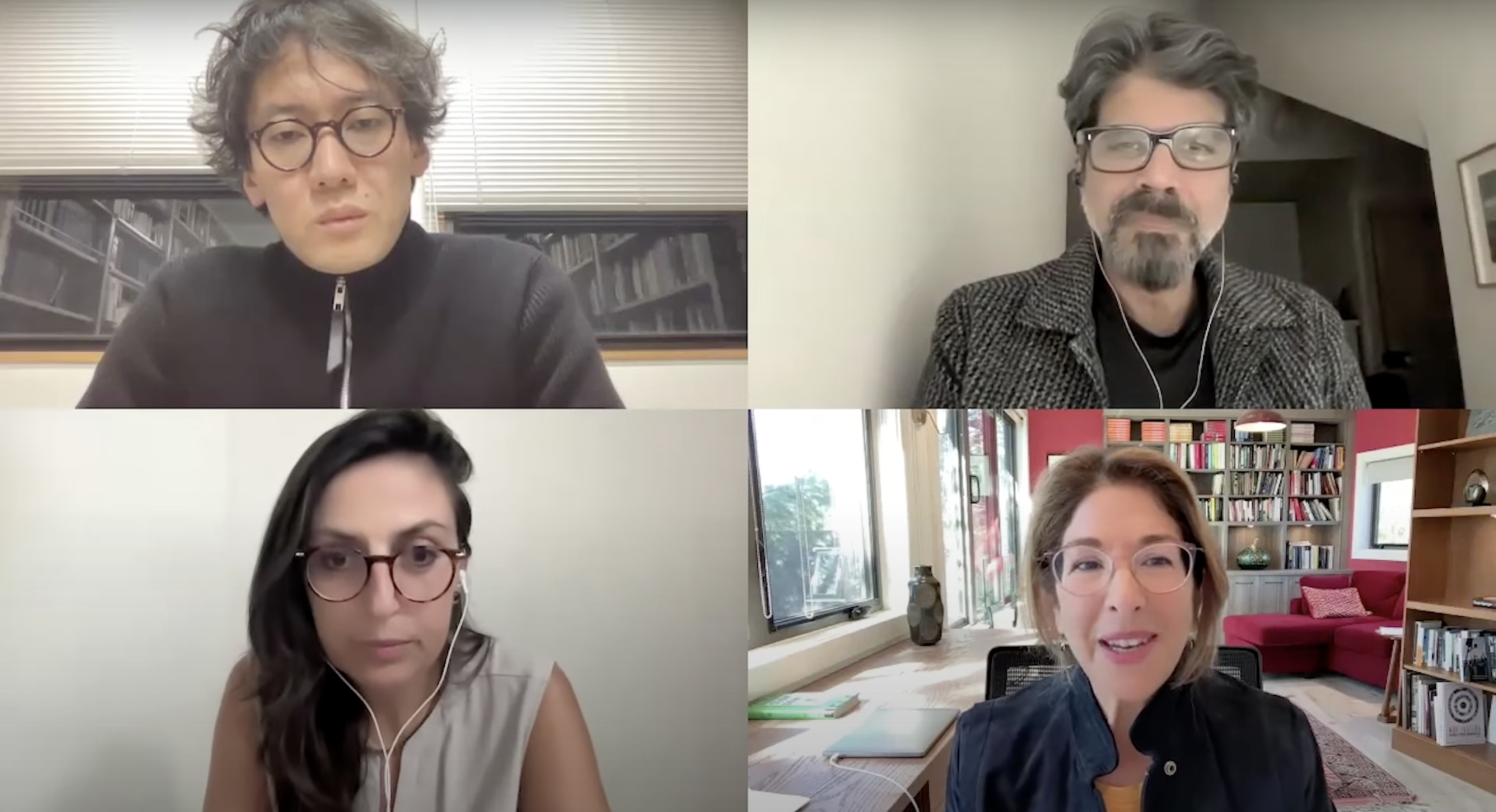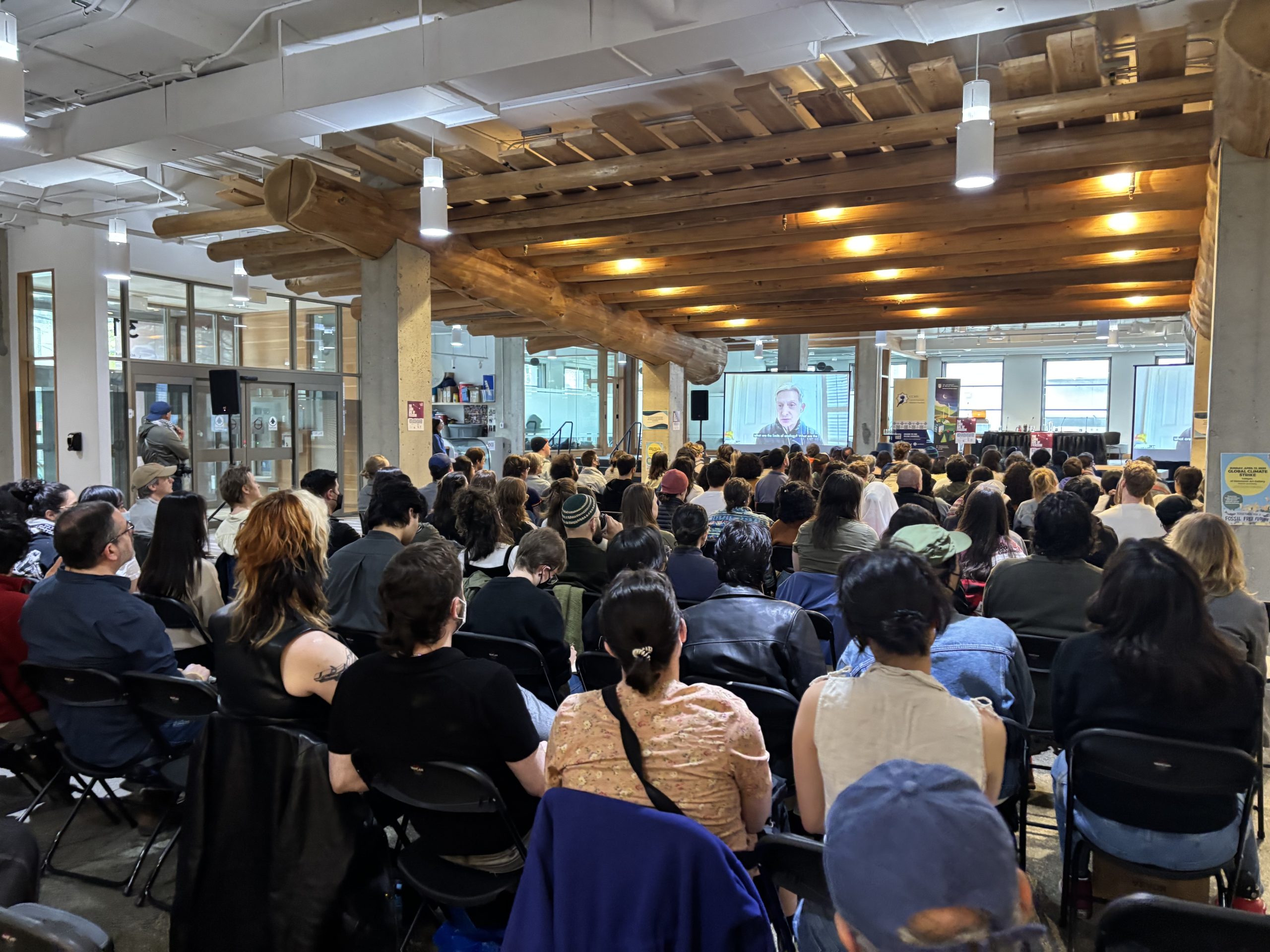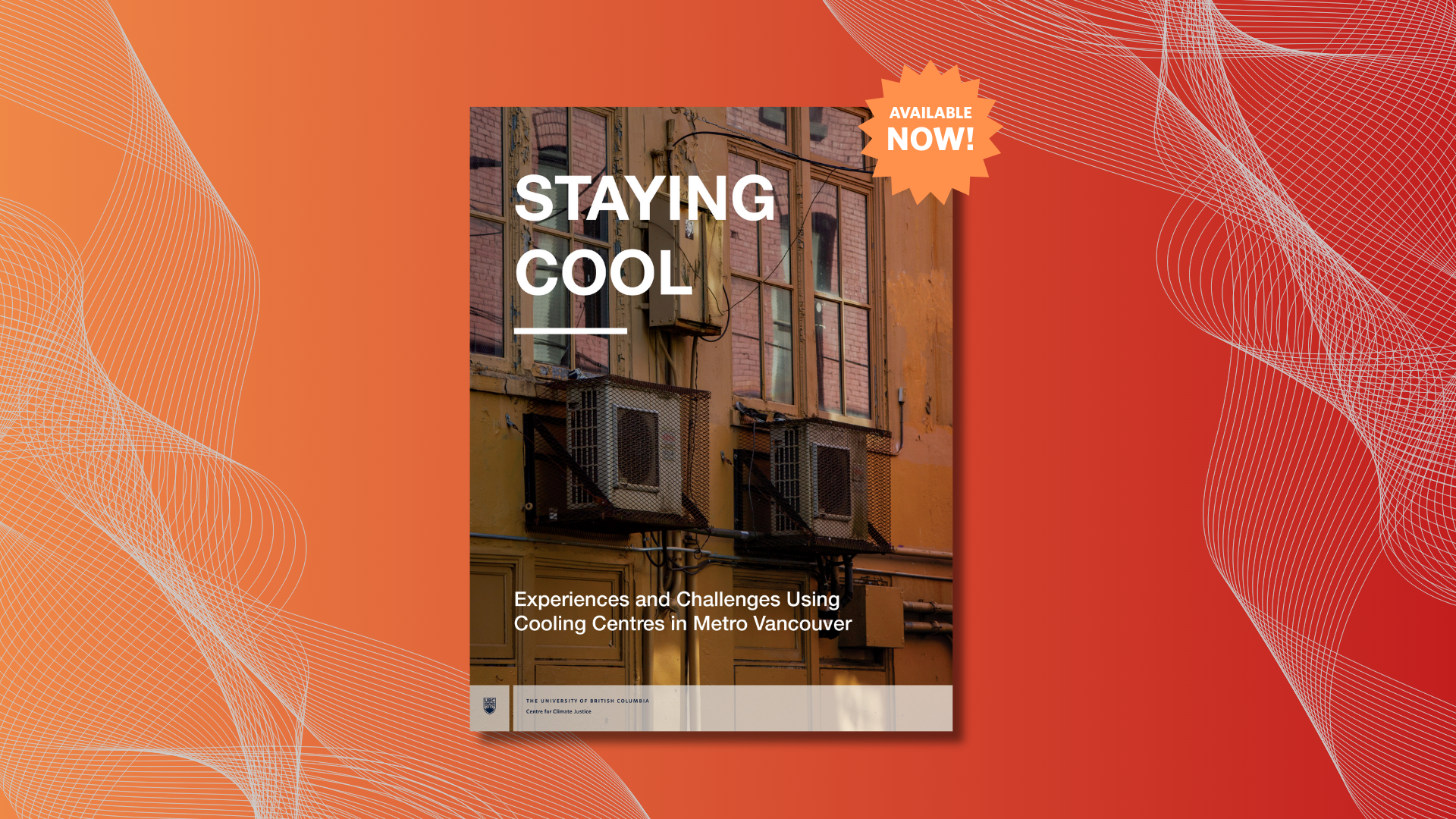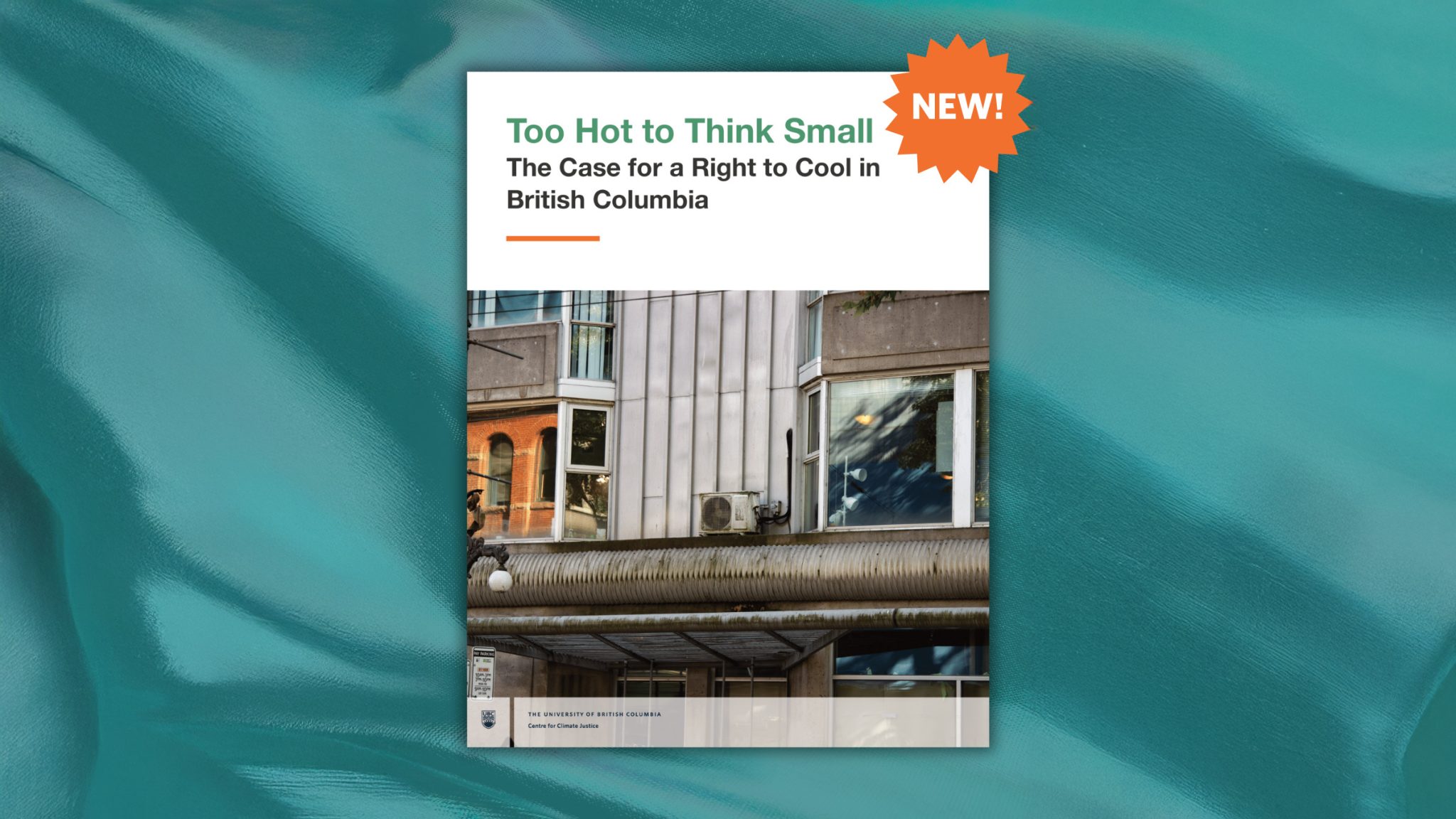

Photo Credit: Georgetown University
Earlier this month, CCJ co-founder and Director of Public Engagement Naomi Klein joined Verónica Gago, Kohei Saito, and moderator Pankaj Mishra as part of the Georgetown Global Dialogues series to discuss the rising threats to democracies around the world as they relate to the global histories of fascism.
The panel also explored questions including: Is fascism inseparable from political and economic modernity, fears of underdevelopment and decline, and so doomed to perpetually return? What are the lessons to be drawn from its periodic outbreaks?
Naomi Klein introduced the idea of seeing today’s current events “as a battle of dueling stories about the birth of the modern world” which provided a foundation for Kohei Saito’s insights about the difference between today’s fascism and fascism 100 years ago. He says that today “there is no strong left-wing demand for social change. Capitalism is in crisis, but at the same time, communism is no longer a threat to capitalism. Right-wing populism today hasn’t become quite dominant because the elite are still comfortable with this existing order. They don’t have to introduce the classical form of fascism as an emergency state or marital law for the sake of protecting capitalism.”
Verónica Gago’s insights continued to build on the idea of pluralistic histories saying that, “Palestine is the centre of the world right now, so everything that we are thinking is connected with the genocide that is happening. When we think of fascism in Argentina and in Latin America, our immediate reaction is also to associate it with our own experience of dictatorship. All these histories, and tragedies in our histories, are connected and we are obliged to produce those connections, to produce a critical thinking about it.”
In her critical analysis of some of the underlying contributors to today’s intersecting crises, Klein asks, “What is more threatening to this capitalist masculinity than the idea of slowing down, the idea of limits? Whether it’s mega dams, nuclear weapons, or fossil fuels, they are all assertions of one-way relationships of dominance with the natural world. […] The toxic nostalgia project that unites so many of these different faces of fascism, and why we can have this bundling together of anti-trans hysteria and climate change denial, is that they are both appeals to a return of a dominance over the family and over the natural world that are really intertwined.”
Saito followed this to share sentiments about an increasing precarity of Global North jobs, economy, and ecological impact which strongly connected to Klein’s emphasis on the importance of relationality and spirituality’s future role to ensure new social movement success.
This amongst many other topics are discussed during the time spent together by these amazing panelists. Check out the full recording!
About the Panelists
Verónica Gago, a professor of social sciences at the University of Buenos Aires and the National University of San Martín, is a prominent political theorist and activist working on issues of feminism and the global political economy. Her most recent books include A Feminist Reading of Debt (2021, with Luci Cavallero), Feminist International (2020), and Neoliberalism from Below: Popular Pragmatics and Baroque Economies (2017). She is also a leader in Argentina’s #NiUnaMenos (Not One Women Less) movement as both a theorist and an activist.
Kohei Saito is an associate professor of philosophy at the University of Tokyo and a leading contemporary Marxist thinker. His most recent book, Capital in the Anthropocene (2020), has sold more than half a million copies in Japan and was published in English as Slow Down: The Degrowth Manifesto in January 2024. Saito’s previous book, Karl Marx’s Ecosocialism: Capital, Nature, and the Unfinished Critique of Political Economy (2017), which creatively explored the ecological dimension of Marx’s thought and its contemporary relevance, won the Deutscher Memorial Prize.
Pankaj Mishra (moderator) is a renowned Indian author, essayist, and literary critic with a global readership. Two of his prize-winning books, From the Ruins of Empire: The Intellectuals who Remade Asia (2012) and; Age of Anger: A History of the Present (2017), explore the history of colonialism and its enduring legacies in our contemporary global era. Mishra is also the author of two critically acclaimed novels: The Romantics (1999) and Run and Hide (2022). His columns and essays have appeared in the Guardian, New York Times, New Yorker, New York Review of Books, and the London Review of Books, among other outlets. Mishra is a fellow of the Royal Society of Literature.


